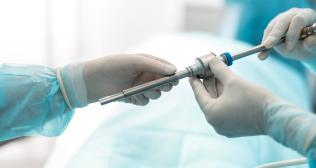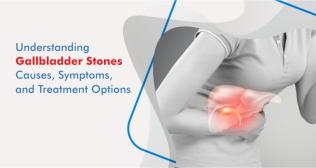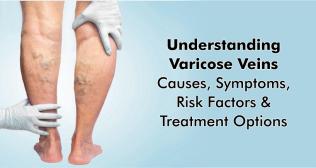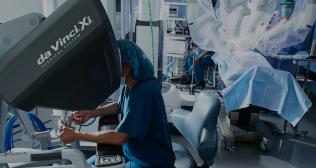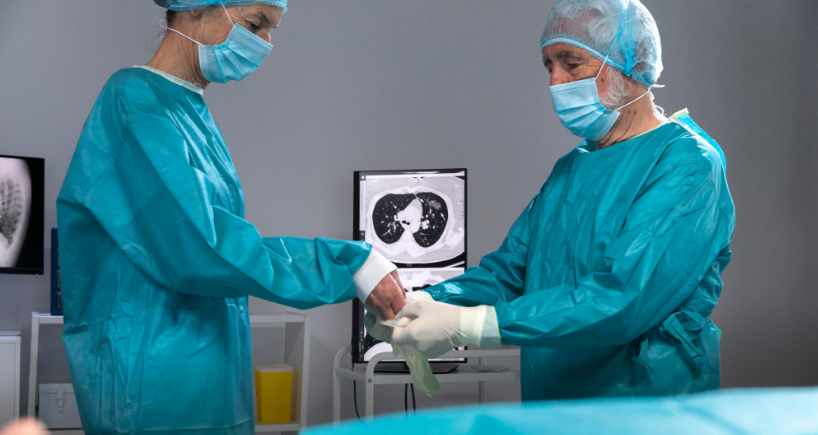
Laser Surgery for Anorectal Conditions: A Modern Approach by Dr. Shabeer Ahmed
Laser surgery is an increasingly popular treatment for various anorectal conditions due to its precision, minimal invasiveness, and faster recovery times. As a leader in gastrointestinal, minimal access, and bariatric surgery, Dr. Shabeer Ahmed at Fortis Hospital, Bannerghatta Road, highlights the benefits and applications of laser surgery in treating anorectal disorders. Here's an overview of the most common conditions treated with laser surgery and why this technique is becoming a preferred option.
Anorectal Conditions Treated with Laser Surgery
1. Hemorrhoids
Laser Hemorrhoidoplasty (LHP): This procedure is used to treat internal hemorrhoids. A laser fiber is inserted into the hemorrhoidal tissue, delivering energy that causes the hemorrhoid to shrink. It cuts off blood flow, leading to coagulation and fibrosis.
Benefits: Minimal bleeding, less post-operative pain, and faster recovery compared to traditional hemorrhoidectomy.
2. Anal Fissures
Laser Surgery for Fissures (LASER LIS): Chronic anal fissures are treated by using the laser to remove fissured tissue and reduce anal sphincter muscle spasms, promoting healing.
Benefits: Less pain, quicker healing, and reduced infection risk.
3. Fistula-in-Ano
Laser Ablation of Fistula Tract (LAFT) & Fistula Laser Closure (FILAC): Laser energy is used to ablate the fistula tract, promoting healing from within without the need for extensive tissue removal.
Other Techniques: LIFT with LASER, Distal Laser Proximal Ligation (DLPS), VAAFT with LASER, Fixcision (fistula coring with SLOFT).
Benefits: Minimal tissue damage, reduced recurrence, faster recovery, and preservation of anal sphincter function, which is vital for continence.
4. Pilonidal Sinus
Laser Ablation for Pilonidal Sinus: The laser is used to ablate the sinus tract, promoting closure and healing, especially in recurrent cases.
Benefits: Faster healing, less pain, and a lower recurrence risk compared to conventional surgery.
5. Anal Warts (Condyloma)
Laser Therapy for Anal Warts: Caused by the human papillomavirus (HPV), anal warts can be precisely removed using laser therapy, which vaporizes the warts while sparing surrounding tissue.
Benefits: Precision removal, minimal scarring, and reduced bleeding.
6. Rectal Polyps
Laser Polypectomy: Small benign polyps in the rectum can be safely and quickly removed with laser surgery.
Benefits: Faster procedure, minimal bleeding, and fewer complications.
Benefits of Laser Surgery for Anorectal Conditions
Minimally Invasive: Laser surgery causes minimal damage to surrounding tissues, leading to faster recovery.
Less Bleeding: The laser seals blood vessels as it works, significantly reducing intraoperative and post-operative bleeding.
Reduced Pain: Less tissue trauma results in lower post-operative pain levels.
Faster Recovery: Most patients experience quicker recovery times, returning to daily activities sooner than with traditional surgery.
Lower Risk of Infection: The laser sterilizes tissue during surgery, decreasing the risk of infections.
Daycare Procedure: Most laser surgeries are outpatient procedures, allowing patients to go home the same day.
Reduced Recurrence Rates: Laser treatment has shown lower recurrence rates for conditions like fistula-in-ano compared to conventional methods.
Procedure and Recovery
Pre-procedure: Diagnostic tests assess the condition’s severity. In some cases, bowel preparation is required before the procedure.
During the procedure: Laser surgery is usually performed under local, regional, or general anesthesia. The laser fiber precisely targets the affected area.
Post-procedure: Patients typically experience mild discomfort, manageable with pain medication. The recovery period is shorter, and patients can resume normal activities within a few days to a week.
Follow-up: Regular follow-up visits ensure proper healing and monitor for recurrence.
Risks and Considerations
Although laser surgery has numerous advantages, there are a few risks:
- Mild pain and swelling post-surgery
- Rare burns to surrounding tissue (more common with less experienced surgeons)
- Recurrence of the condition, though laser treatments generally have lower recurrence rates.
Conclusion: Why Choose Laser Surgery for Anorectal Conditions?
Laser surgery offers a modern, less invasive option for treating anorectal conditions. Whether it’s hemorrhoids, anal fissures, fistulas, or polyps, the precision and reduced recovery time make it a popular choice for patients seeking a quicker return to normal life with less discomfort. However, it is essential to consult with an experienced specialist like Dr. Shabeer Ahmed to determine whether laser surgery is suitable for your specific condition.
For consultations or more information about laser surgery for anorectal conditions, visit Fortis Hospital, Bannerghatta Road, and book an appointment with Dr. Shabeer Ahmed, a renowned expert in gastrointestinal and bariatric surgery.
Categories
Clear allMeet the doctor

- General Surgery | General Surgery
- Gastroenterology and Hepatobiliary Sciences | Gastrointestinal Surgery | Metabolic & Bariatric Surgery | Robotic Surgery
-
34 Years
-
1050







